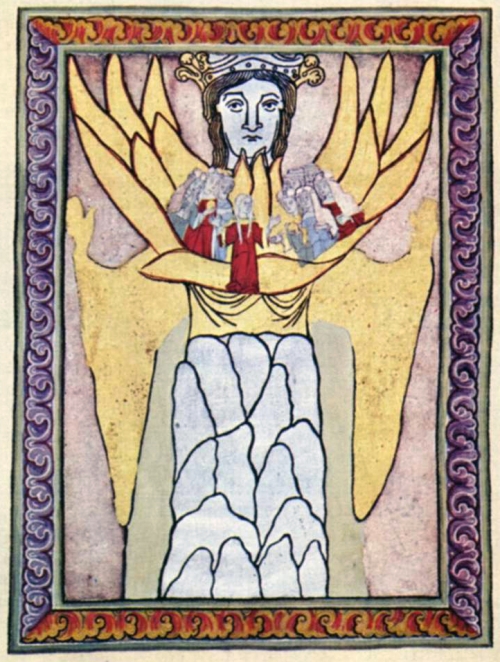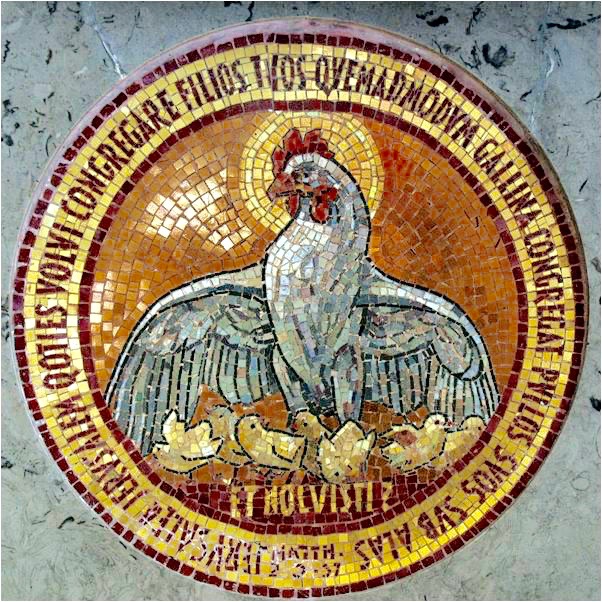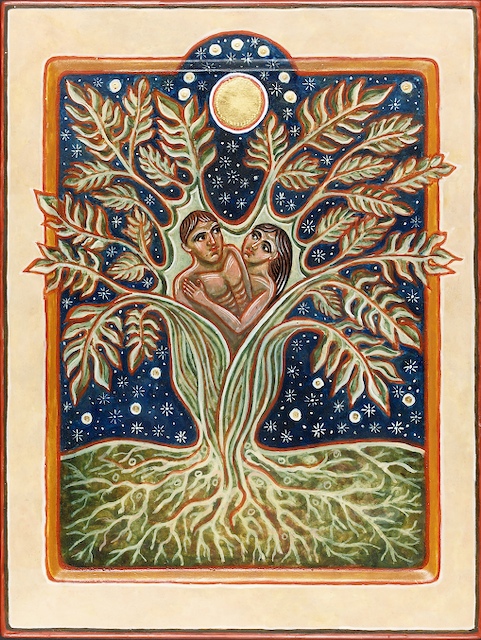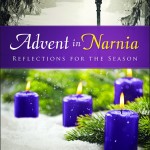
Hildegard of Bingen, Mother Wisdom
In college, I learned to call God, “Mother.” I didn’t stop using “Father,” “Spirit,” “Christ,” or one of my favorites from St. Francis, “Brother Jesus.” A few times, I tried to call God “Sophia,” which is the Greek for “wisdom” and can be seen vividly in Proverbs 1, 3, and 8. But “Mother” felt more natural for me.
The two predominant names for God in Christianity are masculine: Father and Lord. Jesus was clearly male. But God does not have a gender in the way human beings do. The Bible refers to God and even Jesus in a few places with feminine names and images – Sophia, a hen brooding over her chicks, a woman in labor, a mother (human, bear, and eagle). To me, these brief mentions are like treasure that was hidden cleverly and carefully inside the larger landscape of patriarchal language in Scripture, lying in wait for a time when the culture was ready to uncover them.
Perhaps most important is Genesis 1:27:
God created humanity in God’s own image,
in the divine image God created them,
male and female God created them.
The divine includes both male and female. Both Christian and Jewish culture have celebrated and suppressed this by turns, through Biblical history.
It’s important to me that the Church freely offer images and names of God that are both feminine and masculine. There are ways to do this without being distracting or awkward.
At St. Benedict, I do this in the final blessing each week. In the Episcopal tradition, at the end of each service the priest uses the ancient Trinitarian words to give “the blessing of God: Father, Son, and Holy Spirit.”
Some churches have made this inclusive by using “Creator, Christ, and Holy Spirit,” or “Creator, Redeemer, and Sustainer.” These sound too abstract to me. I prefer not to lose the ancient, relational language of “Father” and “Son.” Instead, I use a construction my college friend Jonathan, who happens to be a man, taught me – a way of making the Trinity inclusive without abstraction or into a “Quartinity”:
May the blessing of God, Father, Son, and Holy Spirit, one God, Mother of us all, rest on you, those you love, and those for whom you pray, this day and always.
This may or may not work in your context but I offer it as a simple, incarnational, pronounceable way to make God as “Mother” seem less strange or unChristian in your parish.
God is Mother and Father of us all, thanks be to God! Jesus called himself a mother: “How often have I desired to gather your children together as a hen gathers her brood under her wings, and you were not willing!” (Matthew 23:37 and Luke 13:34).

Julian of Norwich, a medieval anchoress, called Jesus “Mother,” too. I’ll let her have the last word.
A Song of True Motherhood (Canticle R)
God chose to be our mother in all things *
and so made the foundation of his work,
most humbly and most pure, in the Virgin’s womb.
God, the perfect wisdom of all, *
arrayed himself in this humble place.
Christ came in our poor flesh *
to share a mother’s care.
Our mothers bear us for pain and for death; *
our true mother, Jesus, bears us for joy and endless life.
Christ carried us within him in love and travail, *
until the full time of his passion.
And when all was completed and he had carried us so for joy, *
still all this could not satisfy the power of his wonderful love.
All that we owe is redeemed in truly loving God, *
for the love of Christ works in us;
Christ is the one whom we love.




Thanks, this is lovely. I’m pretty sure that woman in the Hildegard picture is in fact meant to represent Mother Church, but Hildegard blurs her allegories…
Wonderful post, Heidi. I used to use the Riverside formula, “Father, Son, and Holy Spirit, One God, Mother of us all,” for baptisms. I never thought about it for the final blessing. Now, I will!
Amen
Please keep your personal theology out of the pulpit. So sick of all this who ha over nothing. Am offended to hear God as Mother When will clergy ever learn benchers like the familiar. We like one place we can bow our heads and speak with God without insane distractions like hollering Mother.